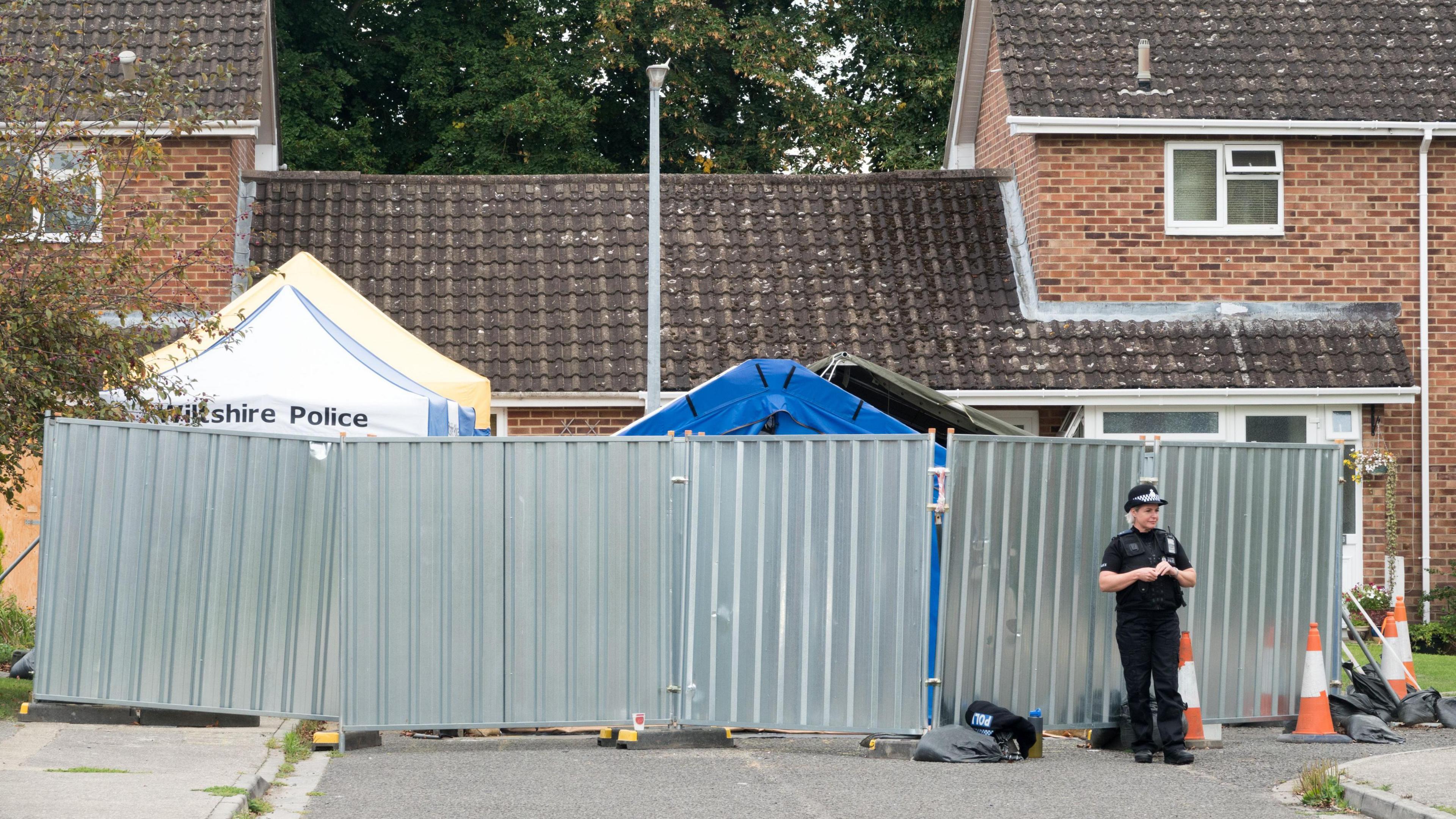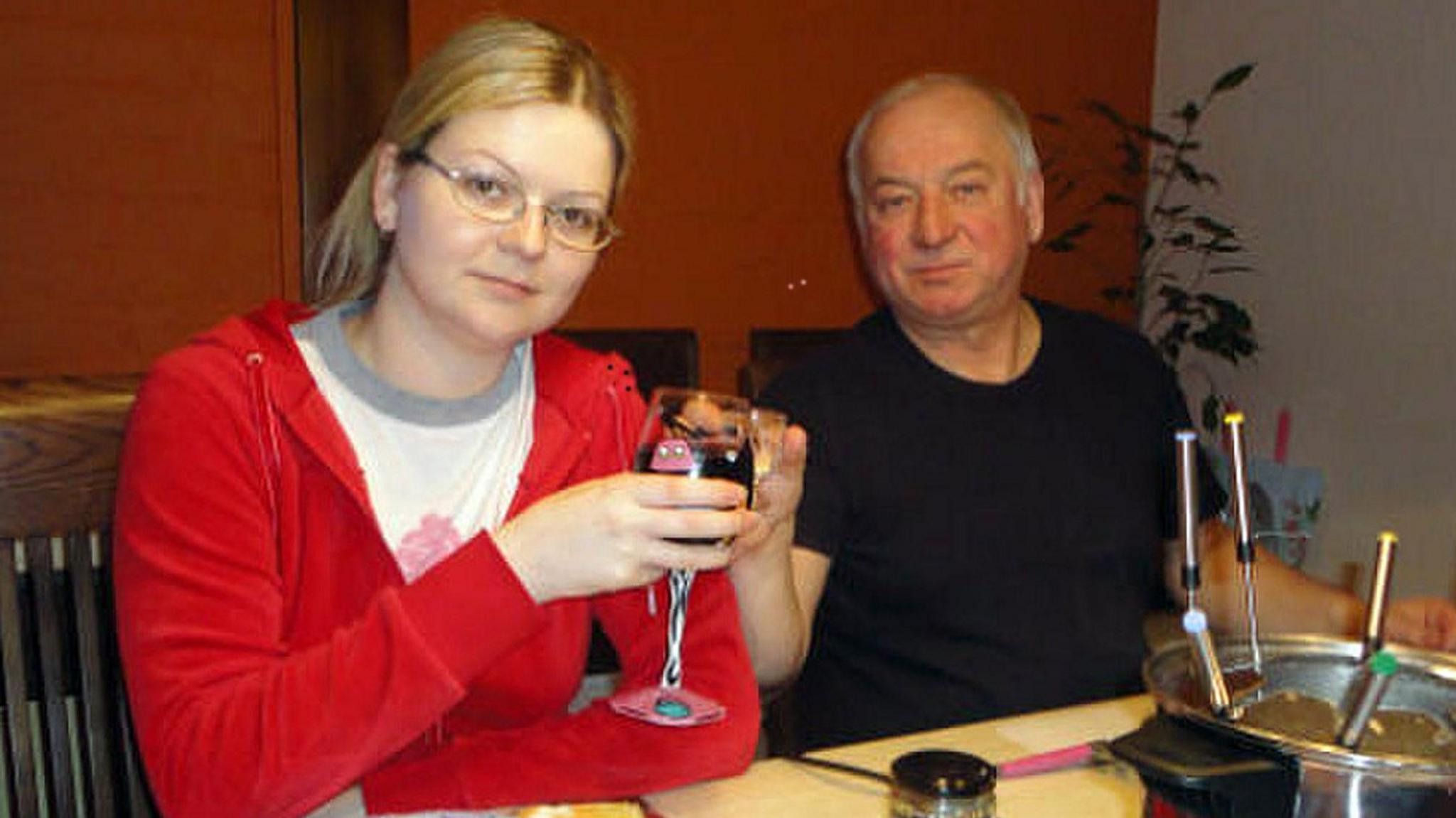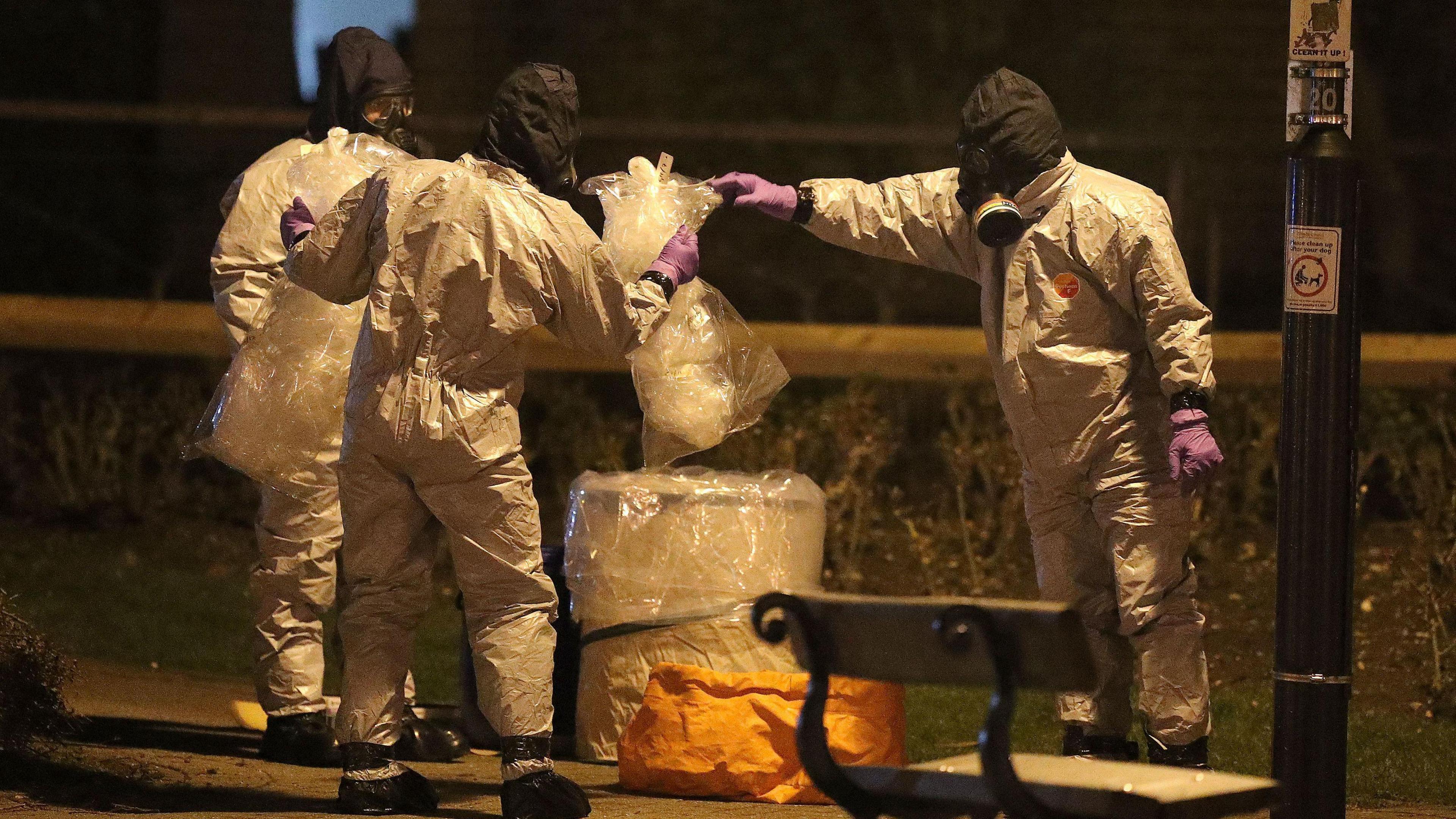Officers hunting for Novichok 'got hypothermia'

Police standing guard outside Sergei Skripals house in Salisbury in 2018
- Published
Forensics officers hunting for the nerve agent Novichok after an attack on a former Russian spy suffered hypothermia, a counter-terrorism forensics chief has said.
Ex-spy Sergei Skripal, his daughter Yulia and then police officer Nick Bailey were poisoned by Novichok in Salisbury in March 2018. All survived, however, Dawn Sturgess, 44, died four months later when she was exposed to the chemical in nearby Amesbury.
Keith Asman, head of forensics and digital investigations for the south-east region counter-terrorism unit, said officers worked through "extremes of weather".
He said it was incredibly difficult task, "like searching for a needle in a haystack" without knowing what the needle was.
Novichok inquiry: Who was Dawn Sturgess and how was she poisoned?
- Published29 October 2024
What is the Salisbury poisoning's legacy?
- Published4 March 2020
Mr Asman told the Dawn Sturgess Inquiry on Thursday that they did baseline blood testing for forensic staff to ensure they had not been contaminated because of how dangerous the work was.
Mr Skripal and his daughter fell ill after being contaminated by Novichok found on the front door handle of his Salisbury home. Mr Bailey was also then poisoned.
Ms Sturgess, a mother of three from Wiltshire, died after spraying Novichok over herself that had been contained in a discarded perfume bottle. It had been found and given to her by her boyfriend Charlie Rowley.
The inquiry heard that senior police officers wanted to trace the container of the nerve agent after the Skripals' poisoning.
He said: "We were searching for a needle in a haystack.
"We didn't know what the needle looked like, or where the haystack was, or if it was even in the country.
"We had absolutely no idea what we were looking for."
In March 2018 there were periods of very tough weather, including Storm Emma and periods of heavy snow.
Mr Asman said: "We worked through extremes of weather, so officers became sick through hypothermia as when they left the premises, having been in a hot environment with PPE, they'd come out and go through safe undressing in an area where it was snowing, albeit we had tents over us."
Mr Asman, whose previous work cases have included the poisoning of the former Russian spy Alexander Litvinenko and the 7/7 bombings in London, said officers looked around flower pots and drains around Mr Skripal's house before expanding the search area.
He explained that during a later search in the summer, after Ms Sturgess had become ill in June 2018, officers then came down with heat exhaustion because of PPE.
The inquiry continues.

BBC Sounds: Salisbury Poisonings
Keep up to date with the latest from the inquiry with our podcast.
Listen to the episode on BBC Sounds.

Follow BBC Wiltshire on Facebook, external, X, external and Instagram, external. Send your story ideas to us on email or via WhatsApp on 0800 313 4630.
- Published13 November 2024

- Published12 November 2024
